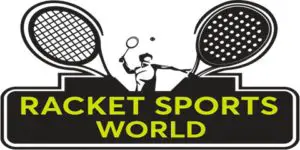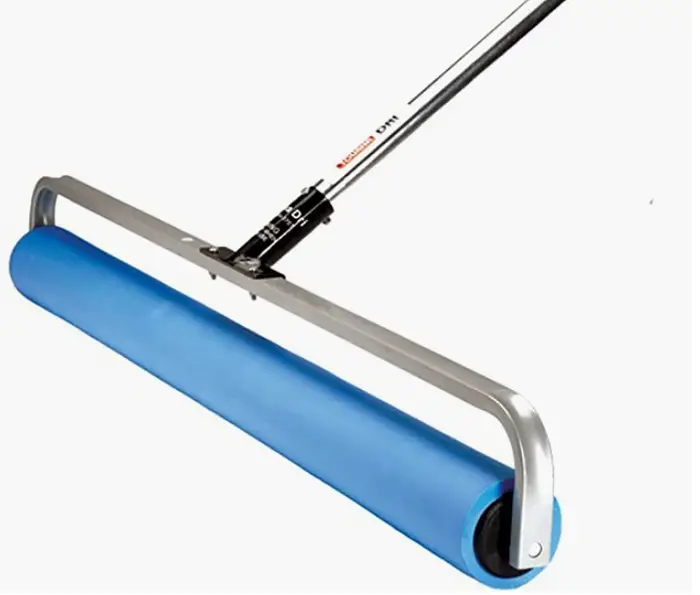Looking to buy tennis drying equipment which helps courts to get ready for action as soon as it’s possible following a cloud-burst? In this piece below we have a list of such equipment you could look to invest your money in to get play underway as soon as possible.
It could take a while before a tennis – or a pickleball – court is completely dried following a rain burst. At times, it could even take up to four hours or more to get pools of water off the court after the storm has passed as we have described in our ‘How Much Time Does it Take to Dry a Court‘ piece.
One of the most vital components in getting the courts fit to play after the rain has had its say is tennis court drying equipment.
Without a high-quality tennis court dryer, things could get very difficult for organizers in getting the courts ready in time and the umpteen delays, especially in regions where rain isn’t too far away at any given point.
Rain delays in sports in general and tennis in particular increase costs, add frustration and in general make it an organizational nightmare. Not to mention the risk of injuries (you can reduce that risk to a small extent wearing tennis shoes for wet weather but one cannot be careful enough).
In this piece below we have made a mention of some of the best court drying equipment that can be used by tennis organizers, tournaments and clubs in general to get the play resumed as quickly as possible after the rain has stopped.
Also Read:
Vermont Rain Shuttle Tennis Court Squeegee
As tennis court squeegees go, the Vermont Rain Shuttle Tennis Court Squeegee is one of the costlier options but it also makes life easier than most of the others in action.
Much like the Tourna-Dri competitor, the Vermont Rain Shuttle Tennis Court Squeegee works well on hardcourt surfaces and is made from lightweight & rust-resistant aluminum that makes it super convenient because that means it can be left outside without the worry of catching rust with time.
The Eva Foam sweeper blade is five feet wide which gives the organizers a solid court coverage while using this and doesn’t leave marks.
To get an idea about how this works, here’s a short video:
Also Read:
Courtmaster Aluminum Rain Shuttle
This is a slightly tweaked version of the original Courtmaster Aluminum Rain Shuttle with design changes made to improve mobility.
The blade has also been modified to improve its working and the width of 5 feet makes it easier to handle and provides enough cleaning of the surface area.
As a top tennis court drying equipment in the market, the Courtmaster Aluminum Rain Shuttle also doesn’t scratch the court with its light weight allowing for easy manueverability.
Customer reviews on it suggest people were happy to order for more than one of these even at club level tennis to ensure a quick turnaround time after a downpour.
Batt Towel
One of the more efficient ways to dry out the water from a tennis court is to use the Batt Towel which spreads and absorbs the water from a hard court surface.
Typically the Batt Towel can be used after the court has begun to dry under the sun following the cessation of rain.
In essence, the Batt Towel is a squeegee which absorbs the water from the court like a “giant suction cup” and it works even when saturated with moisture.
As compared to other rollers and squeegee, the Batt Towel or the BATT is an improvement in that it covers a bigger surface area and the material that is used lasts longer than some of the other similar equipment in the market. In turn this reduces costs.
One of the other advantages with the BATT is the process can be speeded up by attaching it to a golf cart.
Hard court surfaces have a tendency to develop pools of water following a rain-burst – these are also called birdbath – and it makes things rather difficult for the court keepers to get the water off such areas. The BATT helps organizers overcome this issue as well.
VAPTR
Life can be made a lot easier if you have the financial resources to go with a VAPTR. Not only is this piece of tennis court drying equipment one of the easiest to use, it also gets rid of most of the water in double-quick time and gets the court ready to play in a more efficient manner.
Understandably a lot costlier than the other options mentioned in this piece, the VAPTR ROLLR is typically advisable for the bigger clubs or tournament organizers at some of the higher levels like the ATP Challenger and beyond given the costs incurred.
According to the makers of the VAPTR, up to 95% of the court can be dried by this equipment, with the water collected and stored in an onboard reservoir.
Once this reservoir is full from the on-court water collection – it can hold up to 2.5 gallons of water – it can be easily dispersed away from the court and the process repeated till the court is almost fully dried.
The way of dispersing the water from the VAPTR is to roll it on to the side of the playing area and push the equipment back for six inches. In about a couple of seconds the water will flow out – as simple as that!
One VAPTR can dry a tennis court in about 30 minutes which means if you want to get the court in order quicker than that, you could use two or more of them in tandem.
It’s way easier to use as compared to a squeegee and as can be seen from the video below, way quicker too, allowing players to return to court faster.
Final Words on Tennis Court Drying Equipment
Rain causes a lot of mayhem in tennis matches given it’s next to impossible to play in such inclement weather at any kind of inclement weather.
What clubs and tournament organizers need as a result of that – other than the weather to stay away! – is good court drying equipment which gets things ready for players to get back on to the court and resume play.
Some of the more commonly used court drying equipment have been mentioned in the list above which includes one premium product that is typically used at the ATP and WTA level at times.


